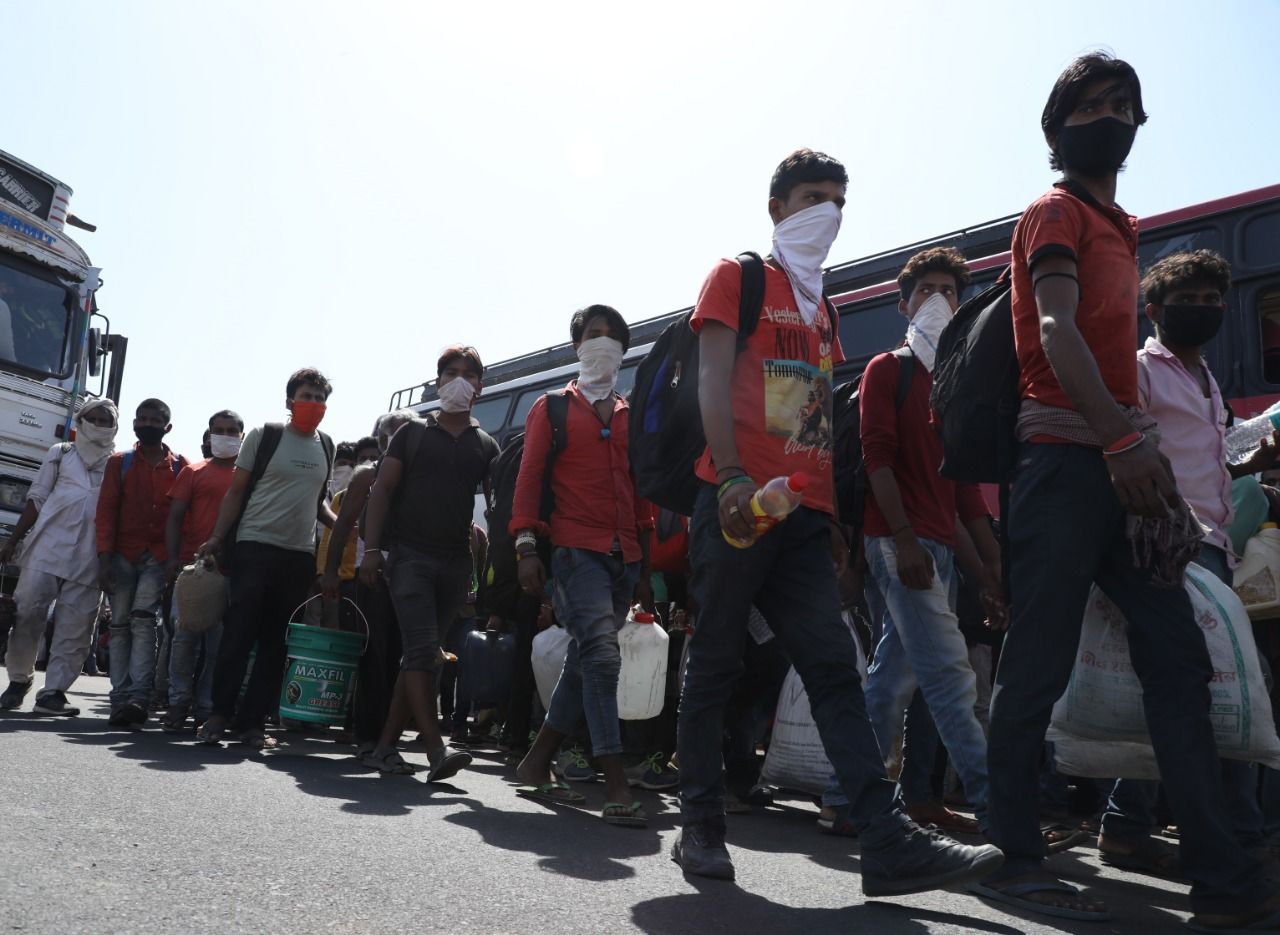In a landmark move, the Jharkhand government is gearing up to launch a special scheme to provide employment guarantee to both migrant as well as local labourers in its cities. Mukhyamantri Shramik Yojna, expected to be launched in a month’s time, is in response to the recent reverse migration witnessed by the state when a large number of migrant workers returned to Jharkhand during the COVID-19 lockdown.
Like the Centre’s Mahatma Gandhi National Rural Employment Guarantee Act (MGNREGA), which guarantees work to the rural poor, the proposed scheme of the Jharkhand government will offer guaranteed 100 days work to urban unskilled labourers. In case the state fails to do so, there is a provision of unemployment allowance, too.
With the launch of this scheme, Jharkhand will become the first state in the country to provide employment guarantee to the urban poor. The state department of urban and housing development is clearing the decks to launch it soon. In April this year, Odisha government too launched an employment scheme for urban poor but only for six months from April to September, and not the entire financial year as proposed by Jharkhand.
“Besides the guarantee of 100 days of employment a year to the labourers in the cities, the chief minister’s labour scheme will also provide an unemployment allowance,” Gurjit Singh, director of the social audit unit and state coordinator of Jharkhand government, who has drafted the scheme, told Gaon Connection. “The unemployment allowance would include payment of one-fourth of the fixed minimum wage of Jharkhand in the absence of work within 15 days in the first month of unemployment. Thereafter, labourers will be given an unemployment allowance equal to half of the minimum wage in the second month, and equal to the minimum wages in the third month,” he added.
As per the draft scheme, the Urban Employment Guarantee Council will also be set up whose chairperson will be the state chief minister, the urban development minister as the vice-chairman and secretaries of the concerned departments as other council members. The council will hold a meeting every three months for effective implementation of the scheme.
Further, a post of urban rozgar sevak (livelihood assistant) will also be created under the urban livelihood mission of the state government. These rozgar sevaks will be appointed on a contractual basis at the block or municipal level.
“The draft scheme also includes unorganised sector workers and the labourers will be able to get work within their ward and city. Job cards will be issued to the labourers,” informed Singh. Urban unskilled labourers in the state who apply for job cards under the new scheme should be more than 18 years of age and should not have job cards under the MGNREGA in rural areas.
“For the operation of the scheme, the state government will utilise the budget available for urban areas, but additional funds can be extended as critical gap funds for municipal bodies. There will be a separate provision for this in the budget,” explained Vinay Kumar Chaubey, secretary with the state urban development and housing department.
The scheme will be implemented by the Urban Development and Housing department through the State Urban Livelihood Mission. Municipal commissioners, executive officials and special officials of municipal bodies will be the nodal officers. “It will provide employment to labourers through urban schemes of various departments of the state government,” added Chaubey.
The urban employment guarantee scheme is expected to be launched in a month’s time to address the needs of the migrant workers who have returned to the state. So far, 6.89 lakh migrant labourers are estimated to have returned to Jharkhand during the COVID19 lockdown. Some of these stranded workers had to be airlifted from Ladakh and Port Blair at the state government’s own cost.
Going beyond the urban employment guarantee, the state government has also decided to upgrade the working conditions of its urban labour force. Under the proposed scheme, various provisions have been made that include safe drinking water and first aid box at the worksites, creches for kids of women labourers.
The proposed scheme is expected to be formally launched by the state chief minister Hemant Soren on the Independence Day, August 15.


















